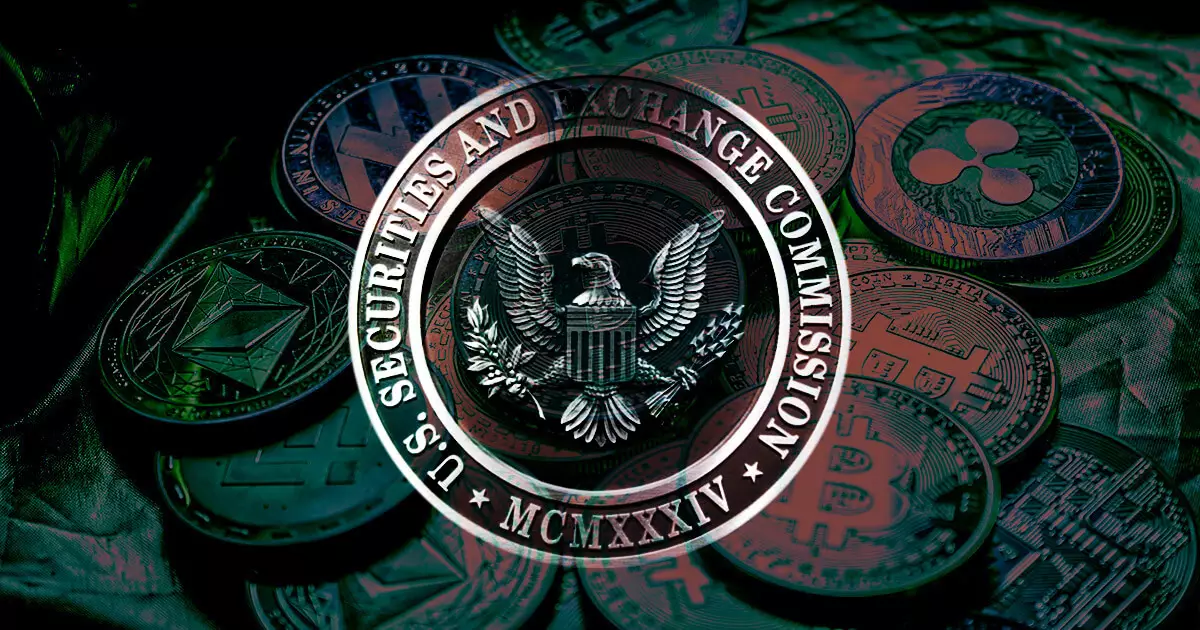On December 11, 2023, the U.S. Senate Banking Committee’s decision to either renominate Caroline Crenshaw, a Democrat member of the Securities and Exchange Commission (SEC), is poised to impact the cryptocurrency landscape significantly. Crenshaw, who took office in August 2020 and has positioned herself as a vocal opponent of cryptocurrencies, is now at the center of a heated debate. As her renomination looms, the crypto community is expressing frustration and concern over the implications her continued presence at the SEC could have on their interests and the broader regulatory framework surrounding digital assets.
Caroline Crenshaw’s tenure at the SEC has been marked by a consistent criticism of the crypto sphere, with the most notable example being her dissenting vote against the approval of spot Bitcoin exchange-traded funds (ETFs) back in January. In her dissent, Crenshaw declared the decision to approve the ETFs as “unsound and ahistorical,” warning that such approvals could set a dangerous precedent that puts investors at risk. Her concerns reflect a broader skepticism regarding the potential of cryptocurrencies to offer legitimate financial services without posing significant risks to investors.
James Seyffart, a Bloomberg ETF analyst, has described Crenshaw as even more vocally anti-crypto than SEC Chair Gary Gensler, who has already faced backlash from various stakeholders in the crypto industry. This sentiment was echoed by industry figures like Emilie Choi, the President and COO of Coinbase, who took to social media to condemn Crenshaw’s position and advocacy against Bitcoin ETFs, framing it as a detrimental stance towards the future of cryptocurrency in the U.S.
The upcoming Senate vote represents more than just a decision on Crenshaw’s future; it symbolizes a critical moment for the crypto industry as it navigates a complex regulatory landscape. Alexander Grieve, Vice President of Government Affairs at cryptocurrency investment firm Paradigm, alluded to the urgency of the situation by referring to this potential renomination as a “last gift” from Democrat Senate Banking Chair Sherrod Brown before he steps down. If confirmed, Crenshaw would remain in her position until 2029, potentially stalling forward momentum for the crypto sector during a pivotal time of growth and innovation.
The political ramifications extend further, as failing to confirm Crenshaw would open the door for President-elect Donald Trump to appoint a replacement who could potentially take a more favorable stance towards cryptocurrencies. This possibility highlights the broader tensions between regulation and innovation, as lawmakers and industry leaders grapple with creating environments conducive to technological advancement while protecting consumers.
Adding another layer to the unfolding narrative, President-elect Trump recently appointed Paul Atkins, a former SEC commissioner known for being pro-crypto, as the next SEC chief. Atkins’ prior experience and positive view of cryptocurrency could mark a significant shift in the regulatory environment, allowing for more flexibility and support for burgeoning cryptocurrencies and blockchain technologies. His understanding of free-market principles and investor protection indicates a balanced approach that may favor innovation over strict regulatory measures.
Industry leaders, such as Coinbase’s Chief Legal Officer Paul Grewal, voiced their approval of Atkins’ nomination, suggesting it is a much-needed shift from the current regulatory climate. This context amplifies the pressure on the Senate to consider the long-term implications of Crenshaw’s potential renomination, particularly if adaptive, industry-friendly regulations can take root under new leadership.
As the Senate Banking Committee prepares to cast its vote on Crenshaw’s renomination, the moment stands as a crossroads for the future of cryptocurrency regulation in the United States. Given her history of opposing major advancements in the digital finance space, her confirmation could signal a continuation of stringent measures against the industry. Conversely, the potential appointment of leaders like Paul Atkins might usher in a new era of growth and innovation for cryptocurrencies. The stakes have never been higher for both regulators and the crypto community, as the balance between oversight and opportunity continues to be a major theme in this ongoing narrative.



















Leave a Reply